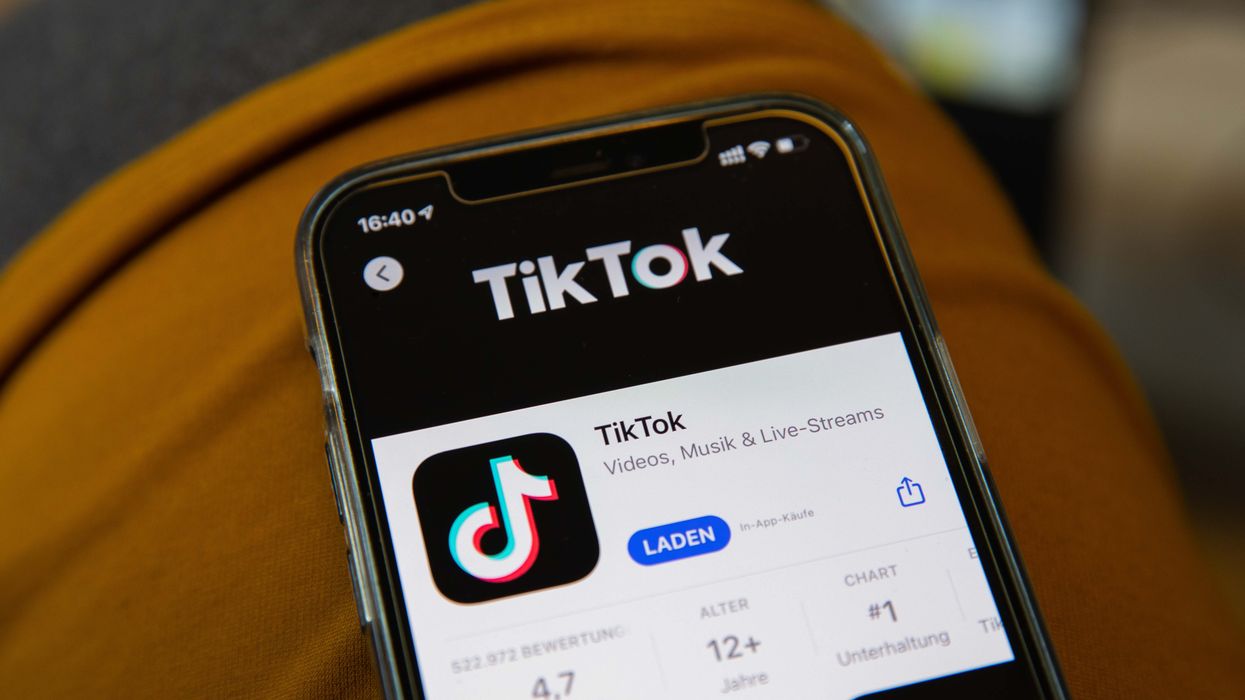Thiele Strong is a sociology professor at San José State University a public voices fellow at the The OpEd Project.
The United States is quickly approaching a presidential election that no one is jazzed about. The incumbent’s approval rating is substantially lower than his disapproval rating. And the biggest contender for his opposition, who just won the Iowa caucuses, is a habitual liar facing 91 felony charges and who will be remembered for inciting an insurrection, introducing alternative facts and calling social activists public enemies. Both are elite, cishet white men who would be president in their eighties if they were to win the election.
Even in a deeply polarized society, many can agree that the candidates are abysmal. This lackluster slate does not reflect who we are as a nation. We are full of accomplishments, innovation, creativity and development. Aren’t we worthy of a leader who reflects the magnitude of our potential?
Let’s allow TikTok to provide democracy to a nation that deeply deserves it and has not tasted it in some time. As social media content creators delve into New Year's resolutions, intentions and directions, I urge us to vision board and act now to find a politically viable presidential candidate.
We do not want 2024 to follow the current political path. We are the so-called leaders of the developed world, so we should be thrilled with our political candidates.
There’s someone who is burning for the chance to be heard and taken seriously as a presidential candidate. Someone who does not have massive campaign financing, who does not have the support of the mega donors, who is not a D.C. staple and yet who feels the time is right for them to listen and lead.
This is not only a pipedream. As a sociologist who teaches and researches social class and stratification, I know that we have more to gain from solidarity than from division. Solidarity is a sustainability resource. Sociologists have long forecasted that capitalism run amok would enter the next stage of its evolution when the masses were given the means and the tools to unite on their political behalf. Through social media we have a non-violent, cost-effective solution to tap into our collective wealth to provide a sustainable political future.
We have always had the numbers. There have always been more members of the working classes than there have been of the corporate, economic and political elites. But the socio-economically and politically powerful corporate elites work together. They meet and party together. And sometimes, they are incredibly irresponsible.
We, with social media as our tool, can do better.
It is important that we work to take control of our government for the people, by the people, before the billionaires get more deeply entrenched into our politics. Our political system has long been a bastion of power for people who have money. We have had millionaires in politics, now we have billionaires with unmatched resources. In the 2016 election, “ The Great Hack ” showed, those who supported Trump used their money to target so-called “persuadables” – swing voters in swing counties of swing states – with psychological warfare in order to shape politics. Their candidate, the political nihilist, won.
For decades, the media has bonded and shaped us. For example, in the early 2000s we saw Madonna and Britney kiss. During the pandemic, it was Nathan Apodaca, Fleetwood Mac and cranberry juice on Tiktok.
We love our TikTok, an opiate of the masses by the masses. They want to take it. Let’s give those in power another reason to be wary of the power of TikTok. Let’s use it to find a 2024 presidential candidate worthy of the powerful position.
This will not work if we promote someone who is not capable of the job. As a reminder, the Constitution requires that a presidential candidate: be 35 years or older, be a natural born citizen and have lived in the United States for at least 14 years. Based on these criteria, many people qualify.
Recently, there have been calls for humanities and artists to get into politics. We also need social scientists to get into politics. We need people who are capable of integrity, organization, mediation and de-escalation. Scan your screens and your consciousness and come up with someone in your networks who you think can go viral for a presidential candidacy.
It’s the 2024 TikTok challenge: #swaythepresidentialplay
To be sure, TikTok challenges are not known for their promotion of social well-being. Instead, they have been linked to teenage endangerment and risky behavior. Elites will say that we cannot elect a candidate from TikTok. But this is not the first time TikTok has entered politics. Remember t when TikTok teens and K-pop stans falsely registered for Donald Trump’s campaign event? We can use TikTok to find eligible people who can rule a nation.
America has the potential to be great, and greatness is never achieved by electing government officials through a classist, racist, sexist and outdated system. Amazing things have come from Tiktok – let’s add another tick to that list.
In past years, celebrities have called for us to rock the vote. Now, let us TikTok the vote.




















